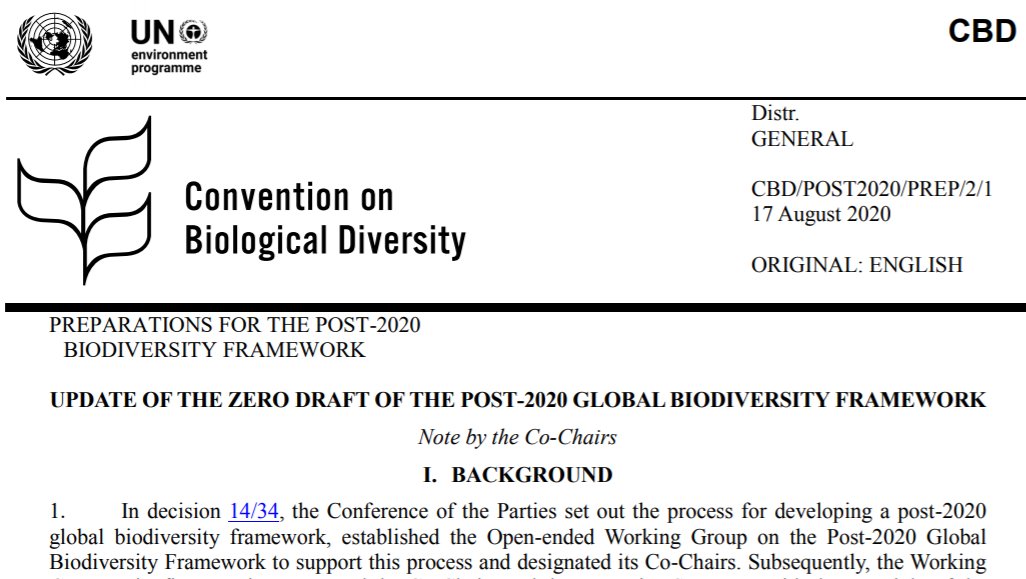1/11 CBD Post-2020 biodiversity framework: the updated zero draft unfortunately seems to confirm a strong focus on doomed financialization and market-based approaches to biodiversity.
#naturalcapital #offsetting
https://www.cbd.int/doc/c/3064/749a/0f65ac7f9def86707f4eaefa/post2020-prep-02-01-en.pdf
#naturalcapital #offsetting
https://www.cbd.int/doc/c/3064/749a/0f65ac7f9def86707f4eaefa/post2020-prep-02-01-en.pdf
2/11 the draft calls to value biodiversity and ecosystem services and "internalize the value of nature."
It also calls for “net improvements by 2050,” “net” being usually the codeword for offsetting, as is the case with Net Zero emission targets & No Net Loss / Net Gain policies.
It also calls for “net improvements by 2050,” “net” being usually the codeword for offsetting, as is the case with Net Zero emission targets & No Net Loss / Net Gain policies.
3/11 The 20 action-oriented targets for 2030 raise serious concerns and questions:
- Does target 1 calling to restore X% of degraded freshwater and marine ecosystems mean to include water quality trading (a market for tradable credits to pollute rivers and other waterways)?
- Does target 1 calling to restore X% of degraded freshwater and marine ecosystems mean to include water quality trading (a market for tradable credits to pollute rivers and other waterways)?
4/11 How is target 2, calling to protect at least 30% of the planet – same as EU’s new target to protect 30% of EU lands and seas – to be implemented? A new regulation mandating the restoration of X% of degraded land is indeed all that is missing to create the demand for...
5/11 ..an international biodiversity offset market, similar to failed Kyoto CDM market. Incidentally, such a target has also been found to be very problematic for indigenous communities, due to a high risk of land-grabbing .
https://survivalinternational.org/news/12455
@Survival
https://survivalinternational.org/news/12455
@Survival
6/11 target 7’s call to “increase contributions to climate change mitigation adaption and disaster risk reduction from nature-based solutions" is also a concern, since NBS typically refer to restoration actions undertaken instead or and not in addition to curbing destruction
7/11 Target 13 calls to “integrate biodiversity values into policies, regulations, planning, development processes, poverty reduction strategies and accounts at all levels, ensuring that biodiversity values are mainstreamed across all sectors” by 2030.
8/11 Yet, the main frameworks to value nature in monetary terms have been shown to have unsolvable conceptual issues and to value only some ecosystem functions. Producing meaningless figures on something that is not even biodiversity can only lead to the wrong policy decisions
9/11 We fear that the current trajectory fostering a neoliberal and market-based approach to nature is very likely to fail from an environmental and social perspective, based on academic findings and the track record of similar initiatives
10/11 A public debate is crucially missing on these issues of crucial public interest: should we pass new laws curbing biodiversity destruction, or should we attempt to create new financial markets to trade permits to destroy biodiversity, as is currently the case?
11/11 As long as media coverage will continue to focus on the level of ambition and ignore the “how,” we will not have the informed debate that this issue deserves. Something for you? @Lindgaard @MartineOrange @lisalsong @FeydelSandrine @AlterEco_ @ContextePouv @Reporterre

 Read on Twitter
Read on Twitter


